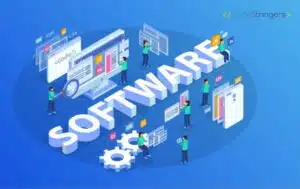
Things to worry about
The key to the social and economic growth of any society is education. It includes everything that people do. The amount of human development has a lot to do with how well people can read and write. There are big problems in Orissa that have something to do with schooling in some way. First, there is a lot of worry about the number of kids who quit elementary and upper elementary school.
At the same time, the high dropout rate slowed down the rise in literacy, which was 33.6% in elementary school. But if you compare girls to boys, 35.4% of girls dropped out of school while only 31.9% of boys did. In 2003-04, 57.5% of students in the upper elementary stage dropped out. 56.5% of the boys quit in the upper primary stage, while 58.6% of the girls quit the same year. The second problem is that the infrastructure of schools is in bad shape. And the schools in our state are too old or dangerous to meet the needs of the kids who go there.
The State Government’s actions
The government of Orissa has always worked hard to make sure that everyone has access to schooling. During the same time, the number of schools, students, and teachers has grown a lot at all levels.In order to reach the goal of Universilisation of Elementary Education (UEE), both the national and state governments have been increasing the number of formal and non-formal primary schools. In India, all people have the right to an elementary school education.
The State tries to make sure that Primary Schools are within one kilometer of settlements with 300 or more people and Upper Primary Schools are within three kilometers of settlements with 500 or more people.
It does this by giving the community control over and oversight of the school system. The goals of the program are to make education mandatory for all children between the ages of 6 and 14 by 2007. It makes sure that the school system is open and answers to the community.
Gets together to reach the goal
At every step and stage, we ask the Central government and other banking institutions for money. How do you keep the schooling from getting in the way?The government doesn’t have enough money to pay for elementary school. But now that the program is going well, we don’t have enough money to give the students the materials they need to learn. The Orissa Government has been giving out study tools every year, with help from the Central Government. For kids up to seventh grade in a state like Orissa, the government needs 3.5 crores books.
Every year, the government was usually given eight crores. In the budget for the current year, only Rs. 4 crores have been approved, but Rs. 30 crores are needed to print study materials. Now, it’s common for the government to give out too little money and then ask for more at the last minute, right before the books should reach the end user.
When we hire good teachers for this program, we should also think about the other side of the coin, which is giving them a good salary. Under the District Primary Education Programme (DPEP) and the Sarba Siksha Abhijan (SSA), the state government hired 40,846 Shiksha Sahayaks.
Due to a budget shortage, the Shiksha Sahayaks are making do with less money and are willing to work for Rs 1500 per month, which is less than the wage of a bonded laborer. Even so, the State Government is not able to give the Shiksha Sahayaks their share at least on time. How could we expect a teacher who is struggling to make a living in this expensive world to teach well? The State Government recently agreed to raise the honorarium that Siksha Sahayaks get each month from Rs 1500 to Rs 2000.
This will cost an extra Rs 25 crore per year from the State Exchequer. Obviously, the State Government has nothing to do with it. If the Sarba Siksha Abhijan scheme fails, the state government deserves the credit. The main problem is a lack of money.
Conclusions
We give up something every time we do something. How long will we have to live with the word “compromise”? Let’s stop making deals that hurt our future and the people who will come after us. At the very least, the State Government should stop paying for basic school. Education makes a person think in the right way.
It teaches man how to think and how to decide what to do. When the total number of educated people in a state keeps going up year after year, where are those literate instincts? Where is your voice against the government’s step backward? But going beyond education programs takes a lot of political will and pressure from the people. Unfortunately, those in power still don’t care much about basic education. While the State Assembly talks about small things, problems with basic education are left to collect dust. If the government doesn’t take any firm steps, all children ages 6 to 14 will be in school by 2003, all children will have finished 5 years of school by 2007, and all children will have finished 8 years of school by 2010. But this is just a dream.






